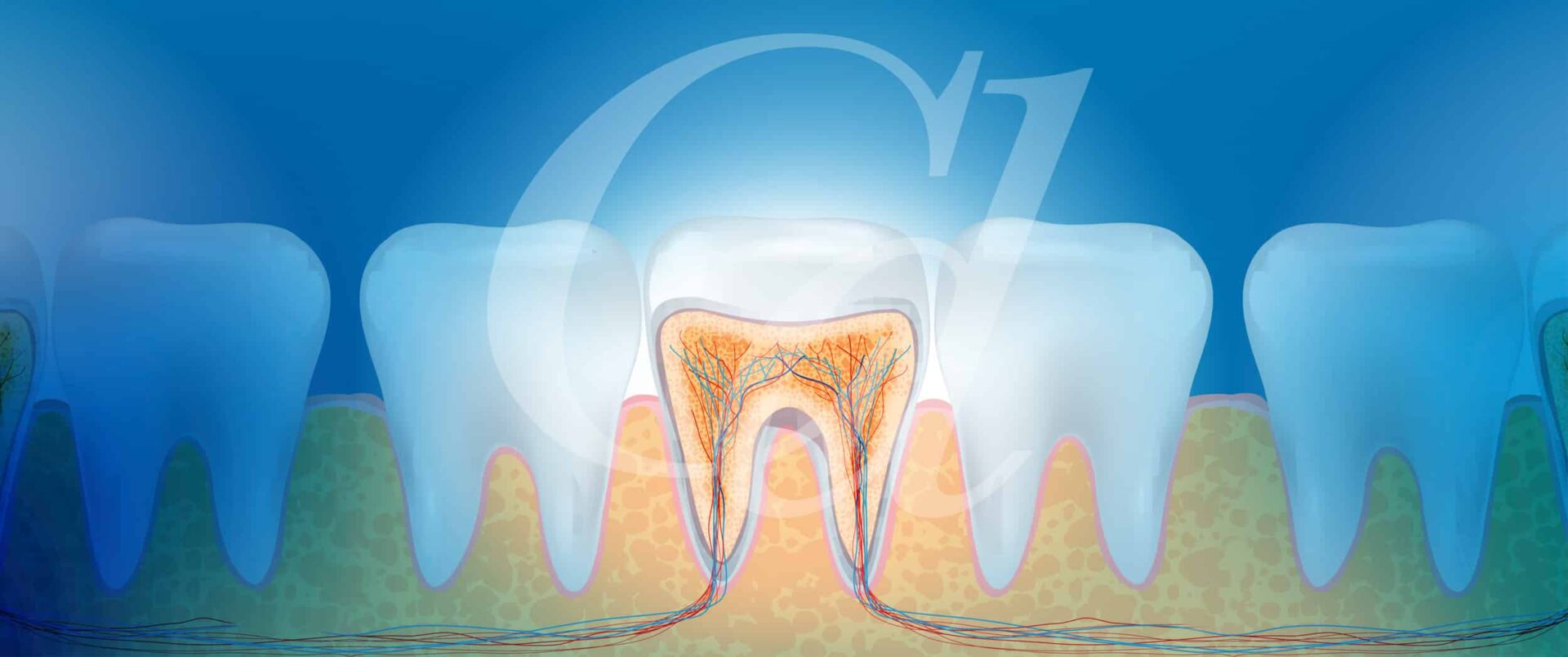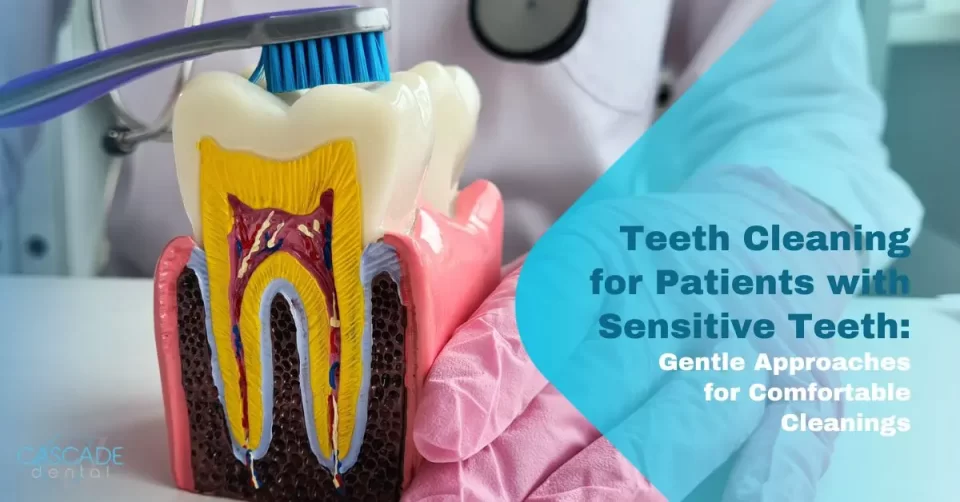Root Canal Treatment Vancouver WA
Comprehensive Root Canal Treatment in Vancouver, WA – Expert Endodontic Care

At Cascade Dental, we know that dental visits can sometimes feel stressful. That’s why we focus on making your exam gentle, thorough, and comfortable. Our dental exams go beyond looking for cavities—we check your entire mouth to catch problems early and protect your long-term health. With our care, you leave each visit feeling confident about your smile and supported in maintaining it.
Non-Surgical Root Canal Treatment: Save Your Tooth with Advanced Care
Non-surgical root canal treatment is a highly effective way to treat infected or damaged teeth. When the pulp (the soft tissue inside your tooth) becomes inflamed or infected, the infection can spread, causing pain and potentially affecting the surrounding areas. Non-surgical root canals remove the infected tissue, clean the inside of the tooth, and seal it, preventing further infection and preserving the tooth.
During this procedure, we use advanced tools to carefully clean and shape the inner chambers of the tooth. The process is minimally invasive, and our patients experience little to no discomfort during the procedure. Non-surgical root canals have a high success rate, with many patients able to maintain the treated tooth for years or even a lifetime with proper care.

When is a Surgical Root Canal Necessary? – Understanding Your Treatment Options
Most root canals don’t require surgery, but in certain cases a surgical approach can save your tooth. We may recommend a surgical root canal if:
- Infection persists after a standard root canal.
- Your tooth has a crack or fracture that needs treatment at the root tip.
- Infected bone tissue surrounds the tooth and must be cleaned for proper healing.
Surgical root canals are more complex and may take longer to recover from, but they provide a strong alternative to tooth extraction. Our goal is always to save your natural tooth whenever possible.
Why You Might Need a Root Canal – Common Causes of Tooth Pain and Infection
Tooth pain can be caused by a variety of factors, but root canal therapy is often necessary when:
- Deep decay: If a cavity has penetrated the tooth’s enamel and reached the pulp, it can lead to an infection, which is often painful and requires a root canal for treatment.
- Repeated dental procedures on the tooth: Multiple procedures or fillings on the same tooth can cause damage to the pulp over time, increasing the risk of infection.
- Cracked or fractured teeth: A crack or fracture in a tooth can allow bacteria to enter the pulp, causing infection and requiring root canal treatment to save the tooth.
- Trauma to the tooth: A tooth that has been physically injured, even without visible cracks, can result in internal damage that affects the pulp and causes pain or infection.
When the pulp becomes infected or inflamed, it can lead to more serious problems, including abscesses, bone loss, and even tooth loss. Root canal therapy is often the best way to save the tooth and restore its function and appearance.
Most patients recover quickly after a root canal and return to normal activities with little discomfort. Here’s what to expect:
Immediate Aftercare
You may feel mild swelling or tenderness, especially if infection was present. Manage this with over-the-counter pain relievers. Avoid chewing on the treated tooth until your permanent restoration is placed.
Follow-Up Care
We’ll schedule a follow-up to check your healing and place a crown or filling. This final step restores strength, function, and appearance to your tooth.
Long-Term Care
Protect your treated tooth with daily brushing, flossing, and regular dental visits. Good oral hygiene helps prevent future damage or infection.
Most patients feel normal within a few days, enjoying a fully restored, pain-free smile.
Root Canal Pain Myths: What to Expect and How We Minimize Discomfort
There are many misconceptions about root canal treatment, especially when it comes to pain. One of the biggest myths is that root canals are extremely painful. In reality, a root canal should not be painful due to modern anesthetic techniques and advanced equipment. Here’s how we ensure your comfort:
- Local Anesthesia: We use local anesthesia to numb the area around the affected tooth, ensuring that you are completely comfortable throughout the procedure.
- Sedation Options: If you feel anxious or uneasy about the procedure, we offer sedation options to help you relax and feel more at ease.
- Gentle Approach: Our skilled endodontic specialists use advanced techniques and tools to perform root canals with precision and minimal discomfort, ensuring that the process is as comfortable as possible.
Most patients report feeling little to no pain during the procedure, and many experience only mild discomfort during the recovery period.
Understanding the Root Canal Process – Step-by-Step Guide
Here’s a breakdown of the typical root canal procedure:
- Consultation & Diagnosis: The process begins with a thorough examination of your tooth. We’ll take digital X-rays to assess the extent of the infection and determine the best course of action.
- Cleaning & Shaping: Once the area is numb, the dentist will create a small opening in the tooth to access the infected pulp. The pulp will be carefully removed, and the inner chamber will be cleaned and shaped.
- Sealing the Tooth: After cleaning, the tooth will be sealed to prevent further infection. In many cases, a temporary filling will be placed, and a permanent crown will be placed in a follow-up appointment.
- Restoring the Tooth: Once the root canal is completed, we will place a crown or filling to restore the tooth’s structure and function, ensuring that it is fully protected.
Ready for Your Root Canal Consultation? Contact Cascade Dental Today!
If you’re experiencing tooth pain or have been advised that you need a root canal, Cascade Dental is here to help. Our experienced team will ensure that your treatment is as comfortable and effective as possible. Contact us today to schedule your root canal consultation with one of our expert dentists. We’ll guide you through the process and help you restore your smile.
Call us today at (360) 892-2994 or schedule your consultation online to get started on your path to a healthier, pain-free smile.
